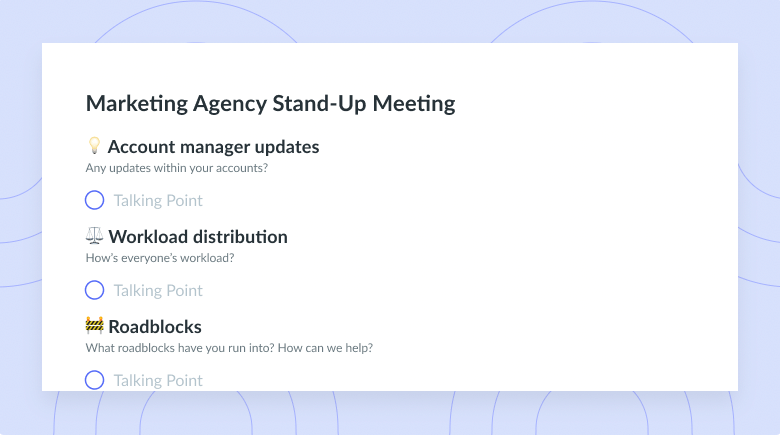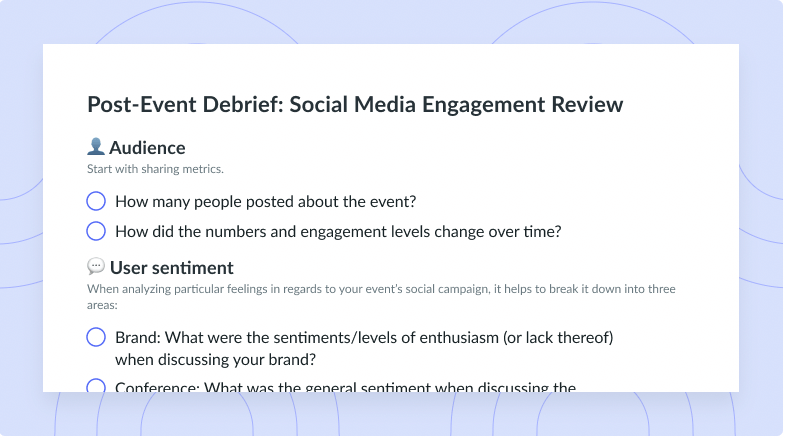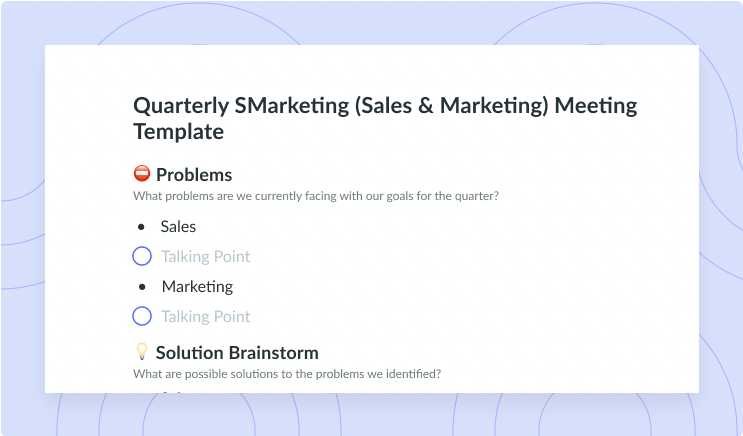11 Reasons Miscommunication Occurs and How to Avoid it
Learn 11 reasons why miscommunication occurs at work occurs. Plus, tips on how to overcome these common miscommunications.
It’s the morning of the kickoff meeting to plan your company’s annual charity event. As the main organizer, you feel ready to tackle the agenda items you’ve outlined beforehand to ensure the meeting and upcoming event are successful. When you arrive at the boardroom, you can immediately sense confusion amongst the group. The event planner is a new hire and tells you that they had no idea this event would fall under their scope of work. Another attendee on the marketing team lets you know that they aren’t prepared to run a large outreach campaign, as they were told months earlier that this event was canceled. To top it off, you forgot to notify the attendees that the meeting was mandatory and some teammates were double booked for another important meeting. You try to stay calm as you begin planning the event with far less resources than you need to achieve your desired outcome.
Why good communication is essential
It comes as no surprise that communication barriers can lead to wasted time and money, embarrassment, and frustration amongst your team. By contrast, when you communicate effectively, you increase workplace morale, positivity, and organization. Open lines of communication create trust and proactive working behaviours, resulting in better performance and results by all.
Let’s talk about miscommunication, why it’s a problem, and how you can regularly practice good communication habits.

Reap the benefits of good communication
Increase workplace morale, positivity, and organization with better communication using collaborative meeting agendas. Try a tool like Fellow today!
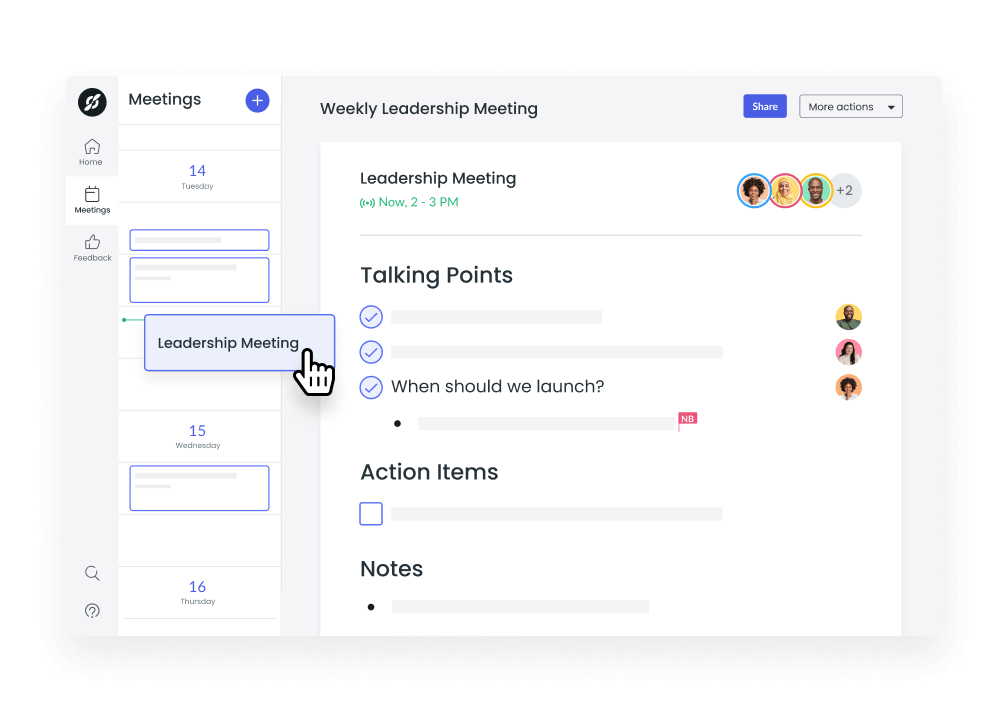
11 reasons miscommunication occurs and how to fix it
- Lack of trust
- Poor leadership
- Close-mindedness
- Insufficient communication channels
- Insufficient feedback
- Poor work environment
- Lack of transparency
- Unclear expectations
- Poor listening skills
- Assumptions
- Lack of one-on-one meetings
1Lack of trust
Problem: If you aren’t open and forthright with your colleagues when an issue arises at work, affecting a project, they won’t know when to expect the finished product and they may feel resentful. Additionally, if you don’t keep your teammates up to date on the status of group work, they won’t be sure whether they can trust you to complete it at all.
Solution: All individuals deserve a work culture of respect and honesty, so maintaining the trust of your colleagues should be a top priority. Establish expectations with your team around communicating timelines and updates as you complete the work. To lighten the mood, suggest a team-building activity that will motivate the team to work together on something enjoyable.
2Poor leadership
Problem: Teams rely on managers to clearly communicate ideas, goals, and the group’s overall vision. When a team lacks leadership, they may be left feeling siloed in their work, indecisive about how to move forward with tasks, and unable to lean on others for support.
Solution: Discuss implementing a system with your manager to help your team keep each other informed on work matters. Establish digital communication channels to regularly interact with your teammates on both urgent and non-urgent matters. If you’re the overwhlemed manager, think about implementing a content management tool to help you and the team keep track of everyone’s work.
3Close-mindedness
Problem: Close-mindedness kills innovation and communication at work. If no one feels like they can suggest new ideas or perspectives because of a headstrong manager or colleague, the team culture will suffer.
Solution: As an employee, you can encourage your teammates to speak up during meetings or to raise their ideas directly with their supervisor. If you’re a close-minded manager, you should listen to your employees’ viewpoints and be receptive to new thoughts and opportunities for the team.
4Insufficient communication channels
Problem: If it’s 2022 and email is your only communication channel, it’s time to introduce some new tools. Teams with insufficient communication channels (or too many) will have messages that get lost and left unread.
Solution: Implement a handful of easy-to-use communication channels and establish norms for each platform. For example, Slack can be used for messages without specific action items and virtual meetings are used to delegate smaller items within large projects. Use Fellow’s collaborative meeting agendas to centralize all action items from different meetings in one to-do list.
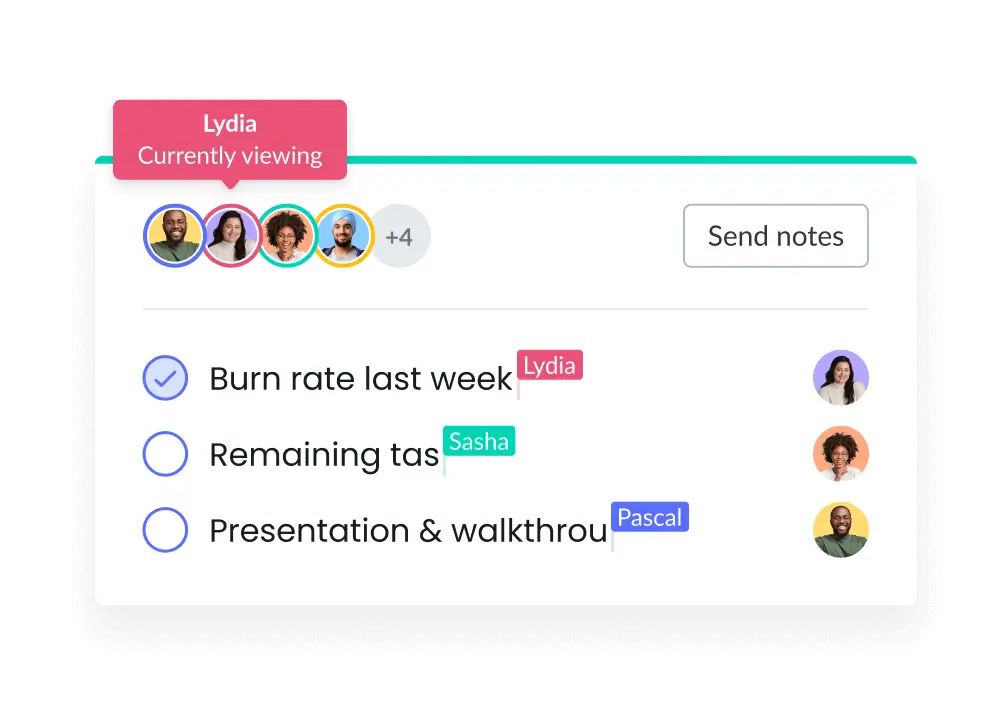
5Insufficient feedback
Problem: It’s simple: teams that don’t receive regular feedback lack direction. Consistent feedback is imperative to your team’s success. How will an individual know that they’re performing a task inefficiently if they aren’t corrected?
Solution: Feedback promotes both personal and professional growth. Managers should have regular one-on-ones with employees to discuss areas for improvement and to give positive feedback. Employees should also be asking for feedback from their managers and colleagues.
6Poor work environment
Problem: Employees who are overburdened with work may not have time to communicate effectively with their teammates. Managers who prioritize productivity over employee satisfaction will have teams with low morale that miss performance objectives due to communication barriers.
Solution: Prioritize communication above all else. When you work in a high-stress environment, you don’t realize that inadequate communication actually leads to project failures and delays. Strive to keep your coworkers and manager informed. Provide feedback to your supervisor if you feel like you can’t balance competing priorities. Aim to develop solutions that beat overwhelm.
7Lack of transparency
Problem: Employees and supervisors who aren’t transparent withhold what they think and feel. Lack of transparency often occurs when employees don’t trust their leaders or each other. For example, if an individual was once publicly scolded by their supervisor for underperforming on a project, they may avoid notifying the same manager when an issue arises that will delay a different task.
Solution: To combat lack of transparency at work, it’s important to approach issues without jumping to conclusions or immediately placing blame on an individual. Alienating someone when they’re vulnerable will only damage the existing relationship. When an individual deflects, confront the issue head-on and avoid any tendencies to act defensively.
8Unclear expectations
Problem: When objectives are unclear, your team won’t have a clue what they’re working towards. For example, if you’re selling a product but you don’t know how many units you’re striving to sell, you won’t know how to schedule your personal deadlines, how much of the product to produce, or where to prioritize your outreach.
Solution: If your expectations aren’t outlined the next time you’re delegated a task, follow up with the right questions. Ask what your supervisor expects you to accomplish, what goals they have in mind, and what the timeline should be. If you’re the one providing unclear objectives, set some time aside to meet with your employees and outline your expectations for projects to avoid confusion and frustration.
9Poor listening skills
Problem: Are you listening, or are you sending an email, scrolling through social media, and drafting agenda items for your next meeting while having an important conversation? Active listening means stopping what you’re doing to concentrate, understand, and respond to the other person. Poor listening skills can lead to errors, misunderstandings, ineffective decision making, and costly mistakes.
Solution: Stop multitasking and start focusing on your teammates. Aim to be free of distractions during in-person conversations and virtual meetings. Make eye contact and silence notifications on all devices so you aren’t tempted to scroll during natural lulls in the conversation.
10Assumptions
Problem: When you make assumptions about your teammates, their performance at work, or even specific things they’ve said, you contribute to an unhealthy work culture. Wrong assumptions can give individuals bad reputations, strain relationships, and even cause projects to fail.
Solution: Focus your attention on what you know to be true. Always assume that your colleagues mean well, and avoid workplace gossip at all costs. Ask follow-up questions and seek clarification when necessary.
11Lack of one-on-one meetings
Problem: If you don’t schedule regular one-on-one meetings with your manager or subordinates, you won’t have uninterrupted time to discuss projects and review performance. You may also not have adequate time to get to know your teammates on a personal level without implementing this meeting format into your regular schedule.
Solution: Use one-on-one meetings as a tool to provide feedback, get to know your team, and grow in your role as a manager or employee. Use Fellow to collaborate on meeting agendas and power your conversations with our suggested templates.
Effective communication for thriving business
An employee misunderstanding instructions; a manager forgetting to share an important update; a new employee assuming a teammate is unhappy with their work because of one single misleading interaction. Miscommunication is everywhere.
By now you’re aware that simple communication barriers can lead to a wide range of business problems. Luckily, for every communication mishap, there’s a solution and good habit that can be formed to disrupt dangerous miscommunication cycles. When a crisis strikes at work, identify the issue and open a line of communication. Trust us, your team and company will thank you in the long run.











